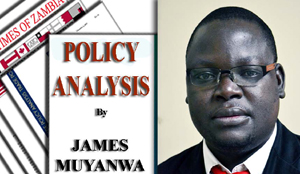 TODAY, I just want to make a running commentary on various economic issues which have sprung up in the last few weeks.
TODAY, I just want to make a running commentary on various economic issues which have sprung up in the last few weeks.
Undoubtedly, the free-fall of the value of the country’s currency, the Kwacha, has stolen the limelight in the last few weeks.
The plummeting value of the dear Kwacha, which reached an anti-climax when it shot above K10 for a United States dollar recently, has occupied the minds of many people.
This is because the value of the local currency affects even the least expected while in most cases there are exaggerations especially by traders as to its impact on business.
Like the prices of fuel, the effect of the falling Kwacha is always blown out of proportion by those who would want to cash in on it.
With the falling Kwacha or indeed rising prices of fuel, it is not uncommon to find a trader of vegetables which are plucked out from his/her backyard garden having increased the prices of the tomatoes due to either the fall of the Kwacha or rise in fuel pump prices.
Unfortunately for the consumers, the increase in the value of the Kwacha and the fall in the prices of fuel do not seem to have the opposite effect on the prices of such commodities like vegetables and one wonders why.
With the current decrease in the value of the local currency, the prices of almost all goods and services one could think of have gone up and that will definitely trigger the rise in inflation rate.
We just have to wait for the Central Statistical Office (CSO) chief Mr John Kalumbi to tell us!
Another issue which has been flying around in the public domain these days is the need to continue finding alternative sources of energy in the face of the current load-shedding caused by the low water levels.
While the alternative sources of energy like solar power kits and the generator sets are becoming rampant on the market, it is the high prices at which they are being sold that have remained a critical issue.
Through Statutory Instrument (SI) number 32 of 2008, the government suspended customs duty on thea gadget to ensure affordable prices of these facilities but from the look of things, the benefits of such duty waiver are trickling down to the consumers.
Similarly, through SI number 33 of 2008, the government also zero-rated the supply of these items for value added tax (VAT) to make them affordable to the wider section of society.
These two SIs which have, to date, remain in force entail that there is no custom duty and VAT being charged on items like energy efficient lighting lamps, solar geysers, solar batteries, generators and other alternative sources of energy.
Through the SIs the government suspended the applicable taxes on the gadgets to ensure affordable prices of these facilities but from the look of things, the benefits of the waiver are not trickling down to the ultimate consumers.
There is need for the importers and the traders to exercise fairness by ensuring that they pass on the benefits of importing these facilities at duty-free cost to the final users.
Otherwise, the Government should not be blamed for facilitating Zesco or indeed any other quasi-government entity to start supplying such gadgets to the consumers, of course at much more realistic prices than what is obtaining at the moment.
Last week I happen to have been in Kabwe where I had interaction with some Kabwe Municipal Council (KMC) employees.
My outing gave me an opportunity to re-evaluate whether the local authorities particularly the KMC was ready for the challenges of decentralisation.
My interaction with the workers at the municipality, especially at the lower-levels, showed that a lot remains to be done for the workers to be able to fit into the decentralisation programme.
At another level one would not be faulted to wonder why the councils have continued operating because in most cases service delivery has became a peripheral responsibility for most of the employees.
At an appropriate time, I will be able to look at some of the specific issues in details to try and amplify on my observations.
Another issue which has continued to exercise the minds of many a Zambian is the on-going infrastructural developments.
One elderly woman told me that she could not understand what had been happening before when she looked at the on-going construction of roads, bridges and other facilities in the country.
She says that the on-going infrastructure is unprecedented in the true sense of the word because since she was born she had never seen such activities, especially in a non-election year.
What is even encouraging is that the current development activities are going on throughout the country without any discrimination.
This development has seemingly been taken as close to the people as possible with each constituency having at least one or two such activities.
After these works have been completed, Zambia, including the countryside, will never be the same!
For comments call: 0955 431442, 0977 246099, 0964 742506 or e-mail: jmuyanwa@gmail.com.






